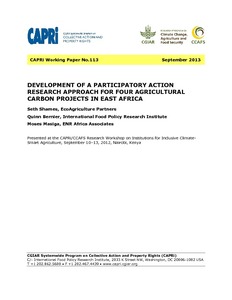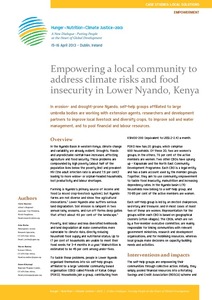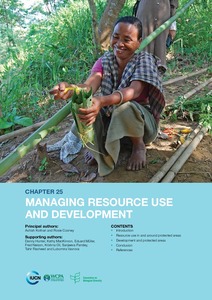Dampak pembangunan sektoral terhadap konversi dan degradasi hutan alam: kasus pembangunan HTI dan perkebunan di Indonesia
This paper examines the conversion of Indonesia’s natural forests to timber and tree crop plantations, notably oil palm. The principal aims are to understand the impact of this process on natural forest and on forest-dwelling people, and to establish whether past and present policies governing this process are meeting their objectives.




